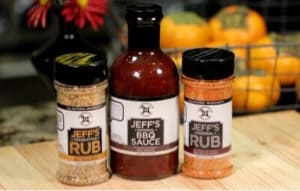Last night I tossed a ~4kg brisket on the smoker @225 and went to bed after it had been rolling for a little under 2hrs. In that time the temp had gone up to >130, and I assume that it continued to climb for some time. When I awoke some 7hrs later I noted that the fire had gone out overnight. The smoker was cool to the touch and my probe thermometer read ~56. I cleaned up the smoker and re-fired it, and threw the meat back on. It's been going for a little under 2hrs and the meat is now just shy of 140.
I'm not sure when the fire went out so I don't really know how long the meat was cooling - but I'd guess a few hours at least (it was pretty cool out last night - maybe 45deg?).
Assuming I finish the smoke and take the meat back up to 185/200, is it safe to eat? It was rubbed, not injected - though I did stick the probe in when I first put it on the smoker...
I'm not sure when the fire went out so I don't really know how long the meat was cooling - but I'd guess a few hours at least (it was pretty cool out last night - maybe 45deg?).
Assuming I finish the smoke and take the meat back up to 185/200, is it safe to eat? It was rubbed, not injected - though I did stick the probe in when I first put it on the smoker...




